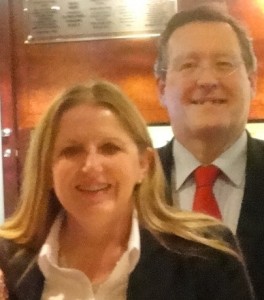Aided by technology, books are taking on new characteristics – and that has implications for both their readers and those who design, write and publish them.
While we used to have to make the decision between buying a hardback or cheaper paperback version of the book we wanted, book-lovers have several more options today. The new additions to the book family – e-books and audio books – are rapidly gaining popularity and saving our forests into the bargain. E-readers and tablets now offer us a portable digital library and our bookcases are beginning to look redundant. Moreover, Apple’s iCloud can synchronise the content over Apple’s devices.
One of the important characteristics of any book is its ability to engage and enhance our imagination. That’s why children love fairy tales and adults opt for love stories. These books provide their readers with space for dreaming and fantasies.
Thanks to advancing technology, many newly published books go far beyond traditional concepts. In business literature, one of the pioneers was Steven R. Covey in his bestseller, ‘The 8th Habit: From Effectiveness to Greatness’. There are 15 inspirational companion films which illustrate the principles taught in each chapter of this book. In an attempt at a degree of interaction previously impossible using purely the written word, Covey provides the reader with a website link and asks him/her to watch the attached video. In the following paragraph, the author continues the dialogue with the reader and starts asking about his/her opinions and feelings.
Taking up this idea, textbooks now carry links to sites containing downloadable templates, graphs, drawings, charts, PowerPoint slide presentations and even additional reading materials or tests. Bilingual electronic dictionaries provide the correct pronunciation not only as a transcript, but in the form of an audio file. All these files can be easily extended and updated.
So, do would-be book authors now need a different competency portfolio? They still need to be subject matter experts – and have a ‘new idea’ to expound in their book. But to create a ‘living’ or ‘interactive’ book, authors also need to master a couple of software programmes and hardware equipment.
This turns this book – unlike a traditional book – into a ‘never-ending story’, always fresh and full of ideas: making it a truly ‘living book’. Tracy T. Tuten and Michael R. Solomon in their recently published book, ‘Social Media Marketing’, provide readers with a plethora of regularly updated additional materials, including blogs, via a website mentioned in the book. Examples can be found at www.zonesofsmm.com and www.coursesmart.com
So, the authors of technology-enabled, online materials are not just ‘thought bearers’ but also highly specialised expert implementers. And, while authors are developing new skills for this new world of learning, what about the skills and abilities required of readers/ learners?
Readers’ expectations will be higher – in terms of both enhanced interaction with the materials and regularly updated content. For Audible and Amazon account holders, among others, the answer is in the Cloud. With any e-book or audio book purchase, buyers get storage space (‘My library’) in the Cloud where their electronic books reside, perhaps waiting to be re-downloaded someday, on demand. This technology also allows new types of services to be provided, such as the Kindle Owners’ Lending Library.
Moreover, e-readers can claim to be superior to traditional books because they allow users to add their own notes, electronically, to a particular page – without damaging the original. However considerate the note maker in a conventional book may be, the result is always some form of vandalism.
Of course, any change may bring its benefits but it brings a sense of loss. In this case, perhaps we’re losing the ‘scent of novelty’ and ‘almost tangible’ thrill of expectancy in each newly opened traditional book.
This post was written jointly by Dr Ladislava Knihova and Bob Little.
Dr Ladislava Knihova is an online learning and marketing specialist who teaches at a university in Prague, in the Czech Republic. You can contact Ladislava via kniha@educationonline.cz








Leave A Comment
You must be logged in to post a comment.